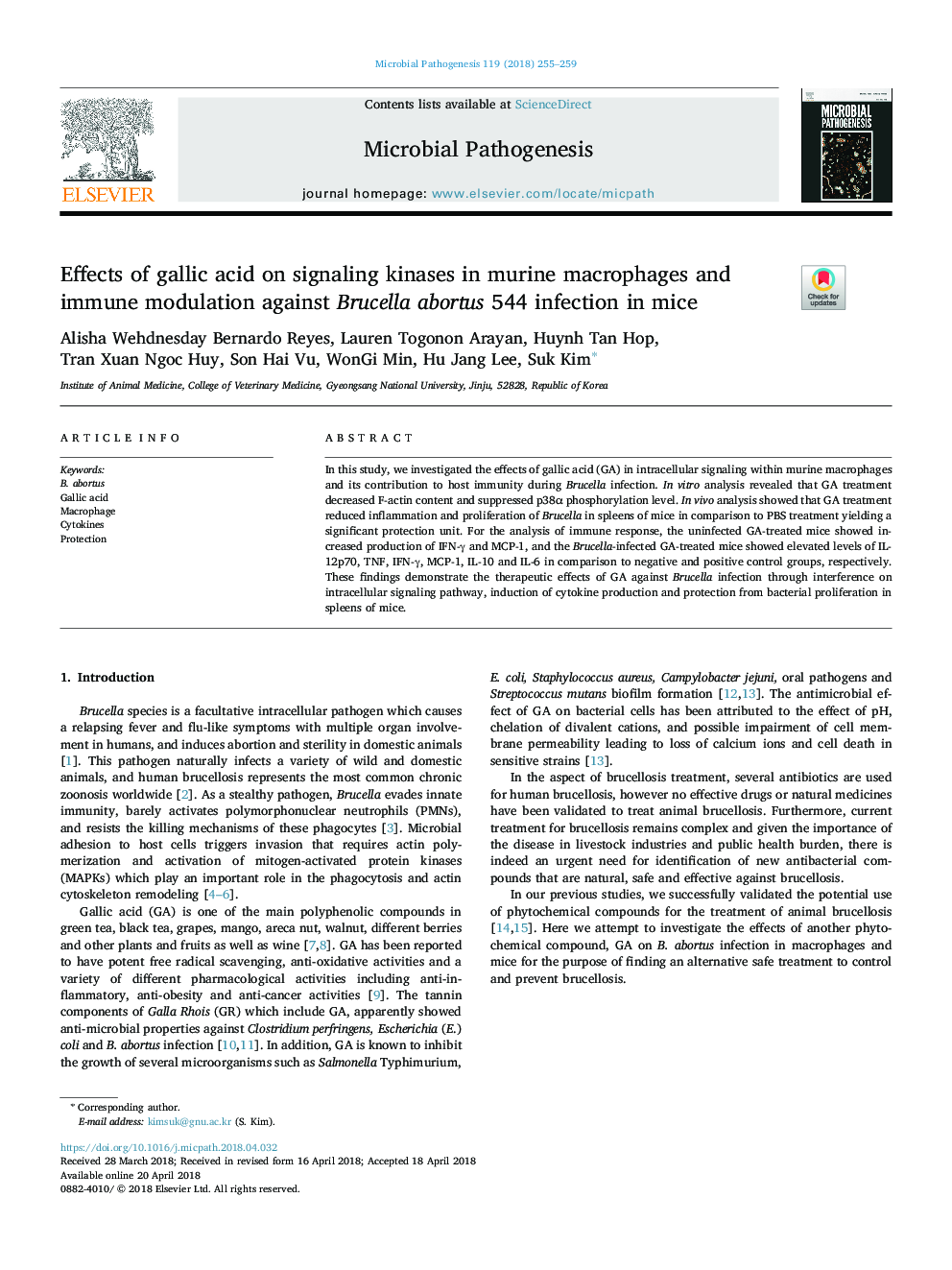| Article ID | Journal | Published Year | Pages | File Type |
|---|---|---|---|---|
| 8749512 | Microbial Pathogenesis | 2018 | 5 Pages |
Abstract
In this study, we investigated the effects of gallic acid (GA) in intracellular signaling within murine macrophages and its contribution to host immunity during Brucella infection. In vitro analysis revealed that GA treatment decreased F-actin content and suppressed p38α phosphorylation level. In vivo analysis showed that GA treatment reduced inflammation and proliferation of Brucella in spleens of mice in comparison to PBS treatment yielding a significant protection unit. For the analysis of immune response, the uninfected GA-treated mice showed increased production of IFN-γ and MCP-1, and the Brucella-infected GA-treated mice showed elevated levels of IL-12p70, TNF, IFN-γ, MCP-1, IL-10 and IL-6 in comparison to negative and positive control groups, respectively. These findings demonstrate the therapeutic effects of GA against Brucella infection through interference on intracellular signaling pathway, induction of cytokine production and protection from bacterial proliferation in spleens of mice.
Related Topics
Life Sciences
Immunology and Microbiology
Microbiology
Authors
Alisha Wehdnesday Bernardo Reyes, Lauren Togonon Arayan, Huynh Tan Hop, Tran Xuan Ngoc Huy, Son Hai Vu, WonGi Min, Hu Jang Lee, Suk Kim,
